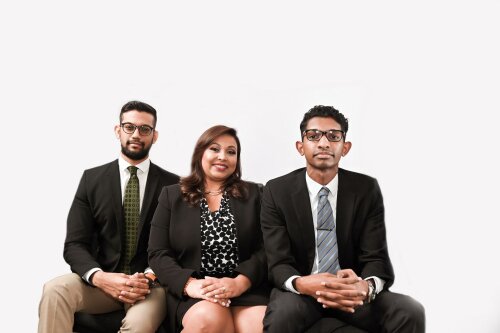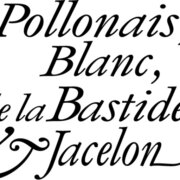Best Copyright Lawyers in Trinidad and Tobago
Share your needs with us, get contacted by law firms.
Free. Takes 2 min.
Or refine your search by selecting a city:
List of the best lawyers in Trinidad and Tobago
About Copyright Law in Trinidad and Tobago
Copyright in Trinidad and Tobago is governed by the Copyright Act of 1997, which provides protection for original works of authorship such as literary, musical, and artistic works, sound recordings, broadcasts, and films. Copyright law grants the creator of these works exclusive rights to use, reproduce, distribute, and perform their creations, subject to certain exceptions. The law is designed to foster creativity by ensuring authors receive adequate protection and economic benefits from their work.
Why You May Need a Lawyer
There are several circumstances where you might need legal assistance regarding copyright in Trinidad and Tobago:
- Infringement Claims: If you believe someone is using your copyrighted work without permission, a lawyer can help enforce your rights.
- Defending Against Infringement: If you are accused of copyright infringement, legal advice is vital to protect your interests.
- Negotiating Licensing Agreements: Whether licensing out your work or obtaining the rights to use someone else's, a lawyer can help navigate terms and conditions.
- Understanding Copyright Ownership: Legal expertise may be needed to clarify ownership rights, especially in collaborative works.
- Intellectual Property Strategy: For businesses and creatives, a lawyer can assist in developing strategies for managing and protecting copyrights effectively.
Local Laws Overview
Key aspects of copyright law in Trinidad and Tobago include:
- Duration of Copyright: Copyright protection typically lasts for the life of the author plus 50 years. For works created by corporate authors, the duration is generally 50 years from publication.
- Registration: While registration is not required for protection, it can be beneficial in enforcement and litigation.
- Exceptions: The law allows for certain exceptions where copyrighted material can be used without the owner's permission, like fair use for educational purposes.
- Moral Rights: Authors have the right to attribution and to object to derogatory treatment of their work.
- International Treaties: Trinidad and Tobago is a member of several international treaties, ensuring protection of works across member countries.
Frequently Asked Questions
1. What is copyright?
Copyright is a legal protection granted to the creators of original works, allowing them to control how their works are used and distributed.
2. How do I register a copyright?
While registration is not necessary to obtain copyright, it can be done through the Intellectual Property Office in Trinidad and Tobago.
3. How long does copyright last?
Copyright typically lasts the lifetime of the creator plus 50 years, but this might vary depending on the type of work.
4. Can I use someone else's work for educational purposes?
Certain uses may be exempt under the fair use provisions, particularly for educational purposes, but specific conditions must be met.
5. What constitutes copyright infringement?
Infringement occurs when a copyrighted work is used without permission in a way that violates the owner's exclusive rights.
6. What are moral rights?
Moral rights include the right of attribution, ensuring that the creator is recognized as the author, and the right to object to derogatory treatment of the work.
7. Can a copyrighted work be used without permission?
Yes, under specific circumstances like fair use, but it’s crucial to understand the limitations and criteria that apply.
8. How can a lawyer help with copyright issues?
Lawyers can offer advice on copyright protection, assist in licensing negotiations, defend against claims, and help enforce rights against infringement.
9. What is the Berne Convention?
The Berne Convention is an international agreement that mandates member countries to provide mutual recognition and protection of copyright works.
10. Do I need permission to use a copyrighted song in my video?
Yes, using copyrighted music generally requires permission or a license from the rights holder.
Additional Resources
For further assistance, consider reaching out to the following resources:
- Intellectual Property Office of Trinidad and Tobago.
- Ministry of Legal Affairs.
- The University of the West Indies offers programs and seminars on intellectual property law.
- Trinidad and Tobago’s legal aid clinics can provide initial guidance on copyright issues.
Next Steps
If you need legal assistance in copyright matters, consider taking the following steps:
- Identify the specific copyright issue you are facing.
- Gather relevant documentation of your work or the alleged infringement.
- Contact a legal professional specializing in intellectual property law for a consultation.
- Discuss your case, legal options, and potential strategies with the lawyer.
- Consider any alternative dispute resolution options if advised.
Lawzana helps you find the best lawyers and law firms in Trinidad and Tobago through a curated and pre-screened list of qualified legal professionals. Our platform offers rankings and detailed profiles of attorneys and law firms, allowing you to compare based on practice areas, including Copyright, experience, and client feedback.
Each profile includes a description of the firm's areas of practice, client reviews, team members and partners, year of establishment, spoken languages, office locations, contact information, social media presence, and any published articles or resources. Most firms on our platform speak English and are experienced in both local and international legal matters.
Get a quote from top-rated law firms in Trinidad and Tobago — quickly, securely, and without unnecessary hassle.
Disclaimer:
The information provided on this page is for general informational purposes only and does not constitute legal advice. While we strive to ensure the accuracy and relevance of the content, legal information may change over time, and interpretations of the law can vary. You should always consult with a qualified legal professional for advice specific to your situation.
We disclaim all liability for actions taken or not taken based on the content of this page. If you believe any information is incorrect or outdated, please contact us, and we will review and update it where appropriate.
Browse copyright law firms by city in Trinidad and Tobago
Refine your search by selecting a city.














